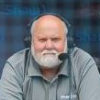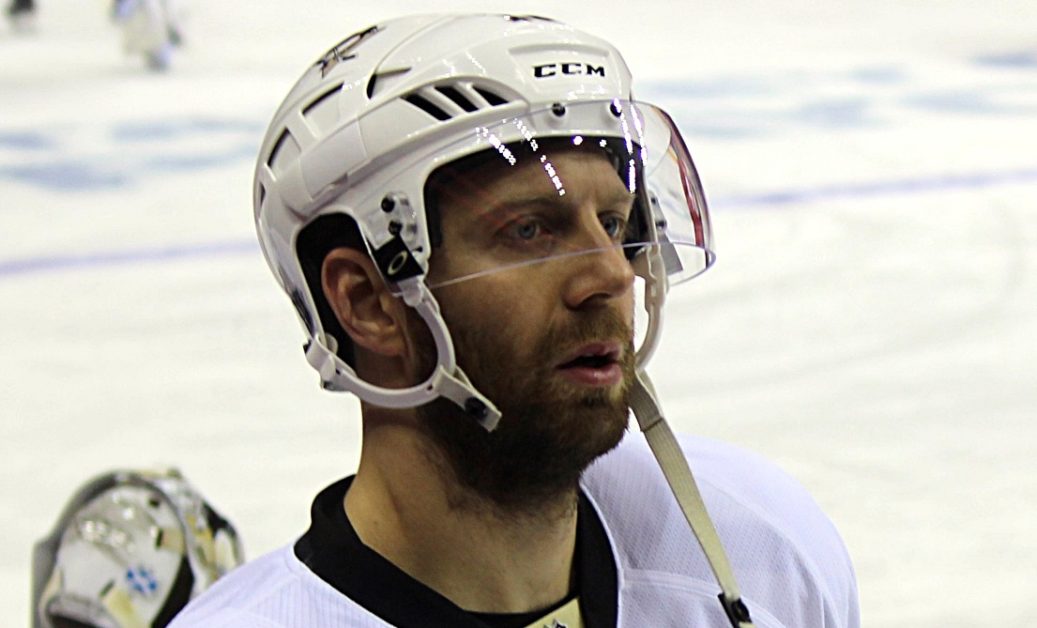Right-winger Eric Fehr keeps his priorities straight on and off ice.
Eric Fehr is one athlete who does not take his faith lightly. In fact, if there’s a single player in who lets his faith guide every aspect of his career, it’s the big [former] Washington Capitals right-winger.
Of course, to understand how this works, you have to understand where Fehr came from and how his faith has led him through good times and bad.
“I think the biggest thing faith has done for me as a professional athlete is put life in perspective,” he says. “There is a lot more to life than hockey; your worth is not decided by how good a hockey player you are or how people judge you as a hockey player.
“I also think it gives me strength to get through tough times because I believe all things happen for a reason.”
Fehr grew up in Winkler, Manitoba — right in the middle of the Southern Manitoba Bible Belt. His faith started at home with his parents reading him Bible stories and teaching him the importance of having God in his life. He went to Sunday school and church regularly while growing up and, as he says quite frankly, “That has helped lay a foundation for where I am today.”
His basis in Scripture certainly helped get him through the toughest part of his NHL career, during the 2011-12 season.
In the summer of 2011, Fehr signed a one-year free-agent deal with the brand new Winnipeg Jets. He was the local star coming home. He had played his entire junior hockey career with the Brandon Wheat Kings, just two hours down the road, before becoming Washington’s first round selection (18th overall) in the 2003 NHL entry draft.
But something wasn’t right. Still rehabbing from a shoulder injury, Fehr never seemed comfortable either in Winnipeg or playing for head coach Claude Noel. Noel expected something from the 6-foot-4, 210-pound forward that wasn’t in Fehr’s nature. As a result, the 2011-12 season was a near disaster. In only 35 games, he had two goals and one assist and it was obvious that one year in the ‘Peg would be his only year in the ‘Peg.
Still, Fehr, didn’t seem to worry much about his future. He knew God had a plan and it was simply his job to go wherever that plan took him.
“Once again it goes back to knowing life doesn’t begin and end with hockey,” he says matter-of-factly. “The 2012 season was definitely my worst statistical hockey season, but at the end of it I can honestly say I tried everything in my power to succeed. Sometimes it just doesn’t work out the way you planned it.
“My feeling is, don’t worry about anything; instead pray about everything. Tell God what you need and thank him for all He has done. His peace will guard your hearts and minds as you live in Christ Jesus,” he says, quoting from Philippians 4:6-7.
In 2013, Fehr bounced back. Using the owners’ lockout to rehab his injured shoulder, he signed with the team that had originally drafted him and he went on to have a solid year with the Capitals.
“At the end of the 2012 season my shoulder was still recovering from surgery and had very little strength and mobility,” he says. “I think the lockout was the best thing to happen to me. It gave me a chance to regroup and find the right trainers, therapists and osteopaths to get my shoulder back in working order.”
Because of his Christian faith, Fehr doesn’t spend a lot of time worrying about why things went wrong in Winnipeg.
“I think there are a lot of reasons some places work while others don’t,” he says. “For myself I think health was the biggest reason. Hockey is a very physically and mentally demanding sport and if you don’t feel confident in both, one of the two is often affected.
“I don’t think it’s as much about the team you’re on as it is the timing of all aspects of your game coming together.”
“I look forward to every season,” he said. “I don’t take playing in the NHL for granted so it’s an honour to play another year. [2018-2019 was Fehr’s last season with the NHL and now plays in the Swiss-A League.]
“I always get antsy in August. It’s like my body knows its time to start up again. I really love my summers, but there is nothing better then playing in front of a sold out crowd and I can’t wait to do it again.”
About


